How Much Vitamin C Do We Need Per Day

Everything you need to know about Vitamin C
The single most popular vitamin is Vitamin C. People take it in hopes of curing numerous ailments. Scientific evidence supports some of their hopes. Some animals make their own Vitamin C. Humans must get it from food or other sources.

[toc]
What Is Vitamin C?
Vitamin C is a water-soluble vitamin and nutrient essential for maintaining optimal health. Vitamin C is a weak sugar acid similar in structure to glucose. Its chemical name is ascorbic acid. Fortunately, Vitamin C is plentiful in vegetables and fruit. Experts say it is among the most effective and safest nutrients.
At least eight enzyme reactions in the body involve Vitamin C as a cofactor. Collagen synthesis is one of the reactions included. Ascorbic acid also acts an antioxidant that protects against oxidative stress. It is a food additive used to prevent oxidation.
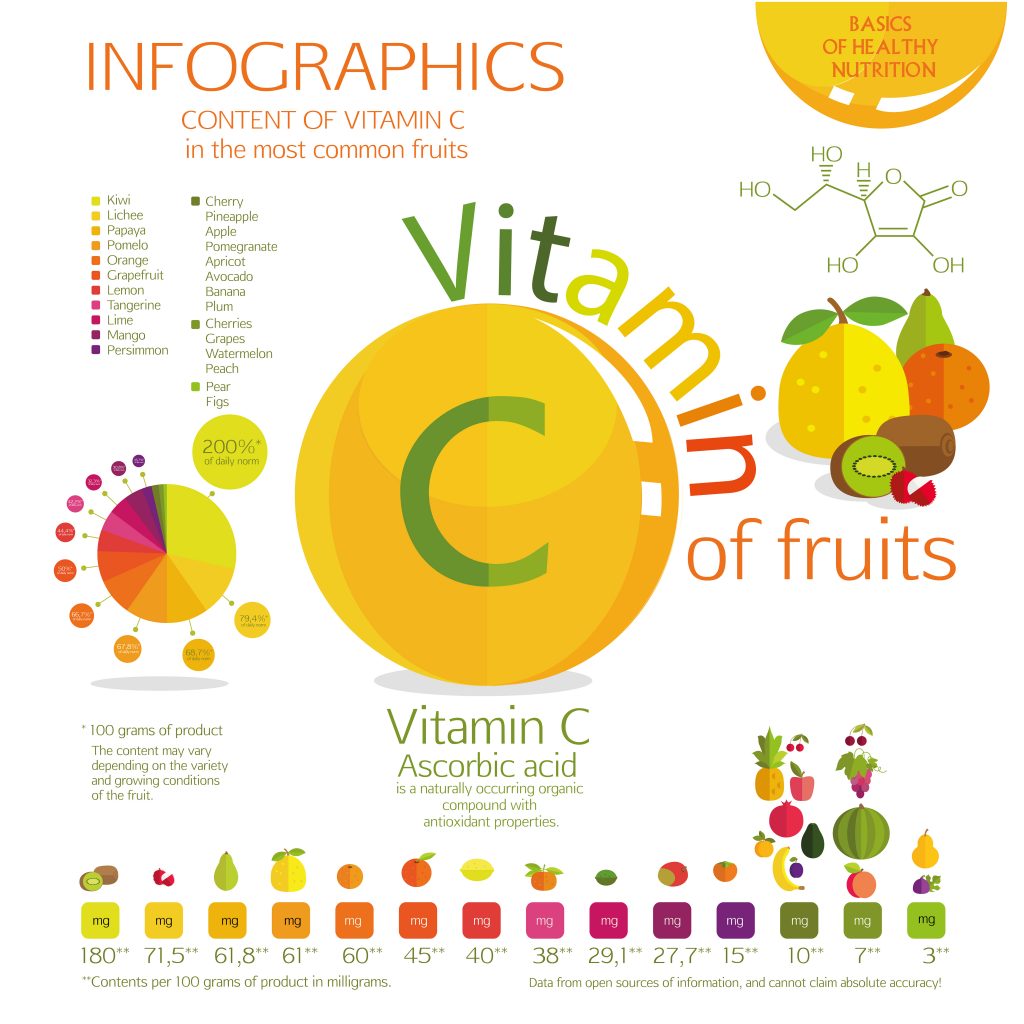
Dietary excesses of Vitamin C are not absorbed by the body. The maximum amount of Vitamin C the body can store is determined in the kidneys. Excesses in the bloodstream are quickly excreted in urine.
Other glands and organs maintain Vitamin C. They include the adrenal glands, retina, brain, spleen, lungs, testicles, lymph nodes, liver, thyroid, small intestines, pancreas, salivary glands, and others that are not as commonly known.
Vitamin C is needed for a range of metabolic activities. It acts as a reducing agent. Vitamin C donates electrons that keep copper and iron atoms in a reduced state.

How Much Vitamin C Do You Need?
Nearly everyone knows that Vitamin C is an important vitamin needed by the body. One in six Americans does not get the recommended daily dose. The daily recommendation varies by age and gender.
Children
- Children from zero to six months have a recommended dosage of 40 mg.
- Seven to 12-month-olds should get 50 mg.
- One to three-year-olds are recommended to take in 25 mg each day.
Male
- Males, ages nine to 13, should have 45 mg of Vitamin C daily.
- Those males who are between the ages of 14 and 18 should have 75 mg each day.
- Men 19 and older need 90 mg per day to meet the recommended dosage.
Female
- Females aged nine to 13 should have 45 mg of Vitamin C daily.
- Girls, ages 14 to 18 should have 75 mg each day.
- Women 19 and older also require 75 mg.
- Pregnant females who are 19 years of age or older should have 85 mg of Vitamin C.
- Lactating women of that age range are recommended to have 120 mg.
The guidelines suggested here are not designed for athletes.
More active people need more Vitamin C than the non-active person. Active people can benefit from doses ranging from 500 to 3000 mg per day. People who are ill may need eight grams during an illness.
Top 7 Foods That Provide the Most Vitamin C
The Institute of Medicine's Food and Nutrition Board recommends eating foods containing Vitamin C on a daily basis. This is a list of the top seven foods high in Vitamin C.
-
Yellow Bell Peppers

Bell peppers are high in Vitamin C and beta-carotene. All peppers are high in Vitamin C; yellow are the highest. There is approximately 340 mg of Vitamin C per large pepper.
-
Guavas
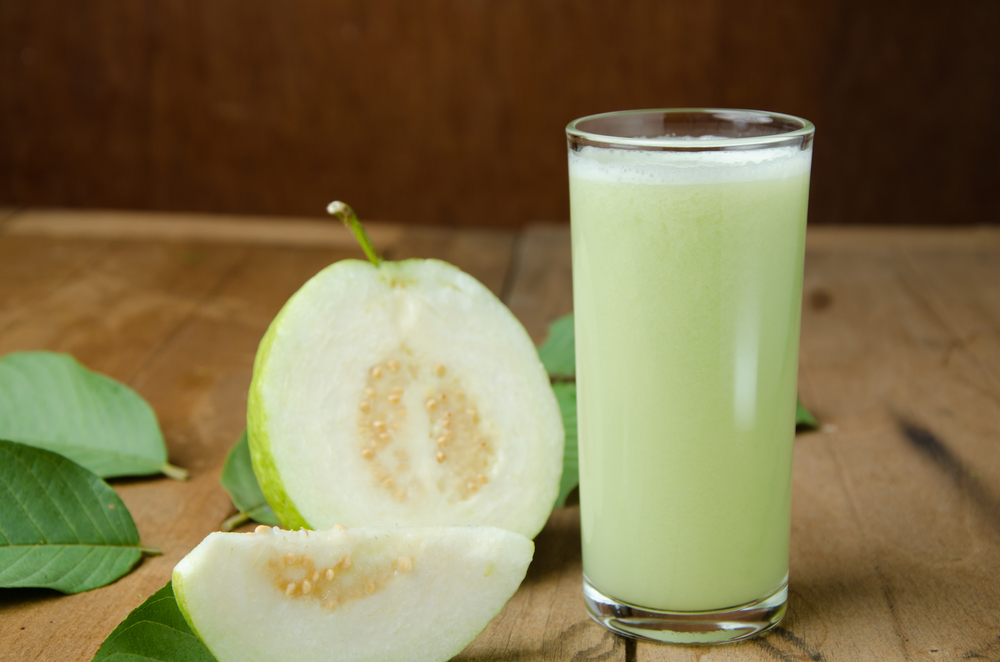
The guava contains more than 250 mg, which is over twice the daily need. The exotic fruit is also rich in manganese, potassium, folic acid, and dietary fiber.
-
Dark Green Leafy Vegetables
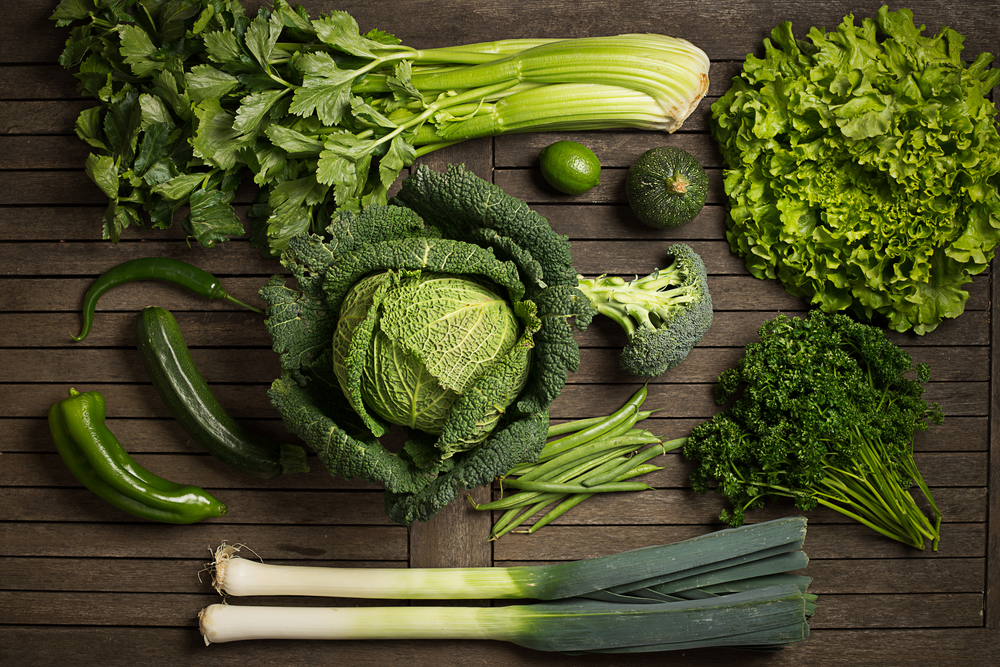
Spinach, chard, watercress, turnip greens, mustard greens, and kale are all great Vitamin C sources. Kale is the best choice. One serving of kale provides as much as 130 mg of Vitamin C.
-
Strawberries

Strawberries are among the healthiest and tastiest foods on the planet. They have an extremely high Vitamin C content. Strawberries are also high in antioxidants and fiber. A cup of sliced strawberries has approximately 98 mg of Vitamin C.
-
Papaya

One serving of papaya contains 100 percent of the daily Vitamin C need. It has a high Vitamin A content also. There is almost 96 mg of Vitamin C in a small papaya.
-
Citrus Fruits
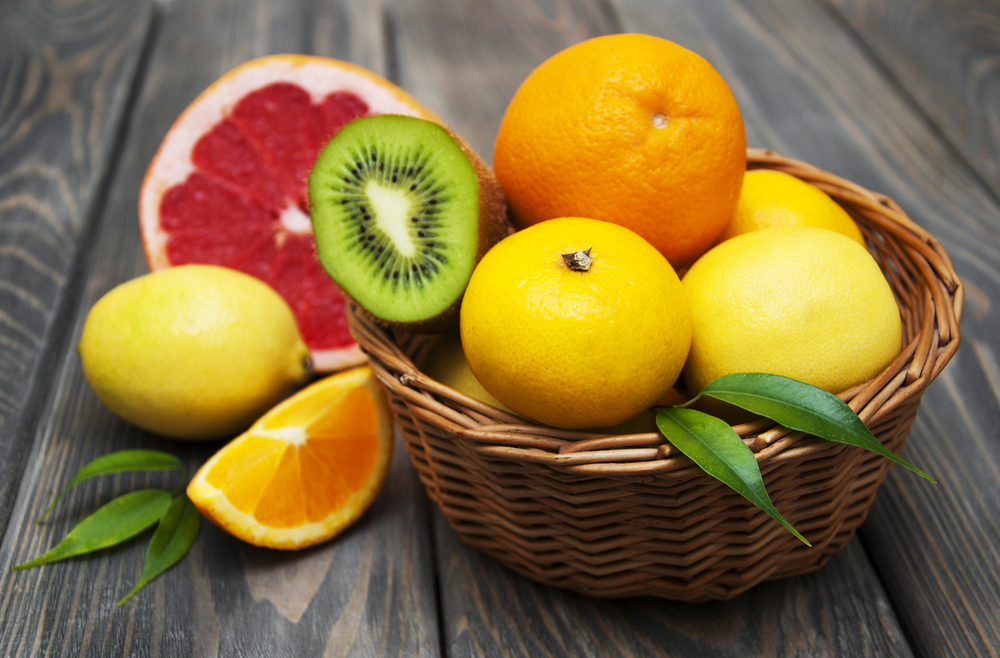
Limes, lemons, grapefruit, and oranges pack a powerful punch of Vitamin C. A small glass of orange juice has 93 mg of Vitamin C.
-
Broccoli
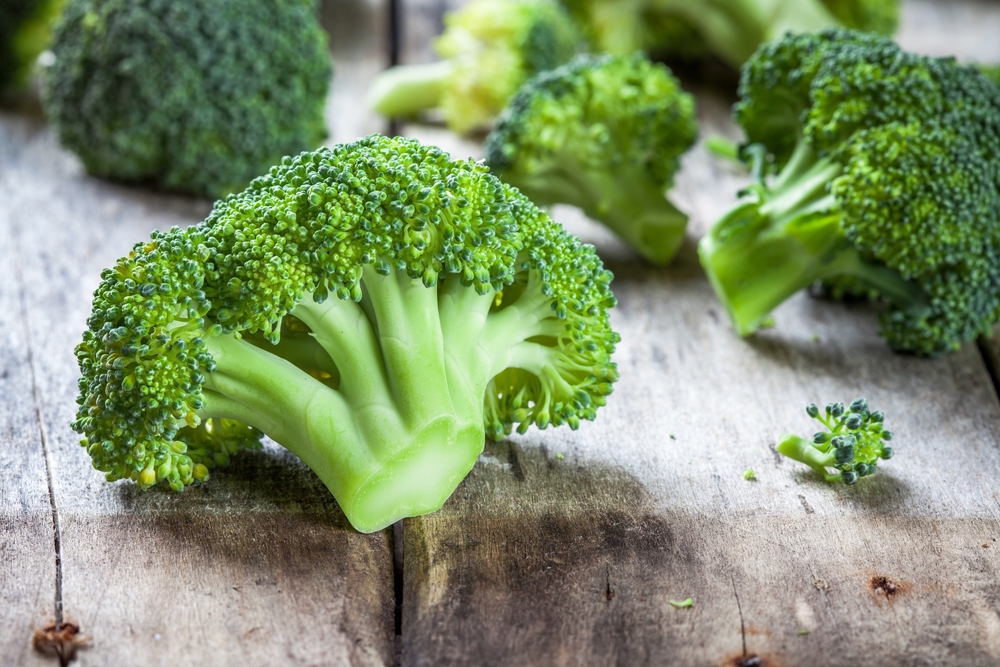
Cooked or raw, a serving of broccoli has more than 90 mg of Vitamin C.
How Do You Know if You Are Getting Enough Vitamin C?
When you eat Vitamin C-rich vegetables and fruits, it is hard to be sure you get enough Vitamin C and actually absorb the amount indicated in this or other articles. Vitamin C is a hard vitamin to develop a deficiency of, but it is possible.
There are specific ways to make sure a deficiency does not occur. Eating the right foods is only a part of what needs to be done. It is also necessary to make sure the body absorbs Vitamin C properly. The Standard American Diet should get enough foods that contain the right mix of minerals and nutrients.
The right amount does not necessarily mean a person will feel more energetic, but he or she will not feel run down either. Vitamin C has been shown to make people feel good. Boosting the absorption rate is not as easy as increasing the intake of Vitamin C through supplements and natural food.
It is good to take action if low levels of Vitamin C are suspected. The most reliable means is to have a doctor test levels during a checkup. The doctor can give personal advice and assistance.

Potential Effects if You Don't Get Enough Vitamin C
The body is an amazing indicator if you know the signs. When you are low in Vitamin C, the following signs appear.
You tend to bruise easily. When brushing your teeth, your gums bleed. The gums also become inflamed and swollen. Teeth loosen. You may experience joint pain. Your face may become puffy. You may suffer from anemia, and your bones may become fragile.
When you have a low level of Vitamin C, you tire easily and lack endurance. The cuticles of your nails tear easily. Some people experience a lot of hair loss. Wounds are slow to heal. Infections, flu, and colds occur easily and often.
Mood swings sometimes occur when they ordinarily would not. A sudden drop in weight may be due to very low levels of Vitamin C. This kind of weight loss is not celebrated. It is an indication that the body is literally wasting away from malnutrition.
Those exhibiting three or more of the listed symptoms should check with a registered health care provider to pinpoint a Vitamin C deficiency.
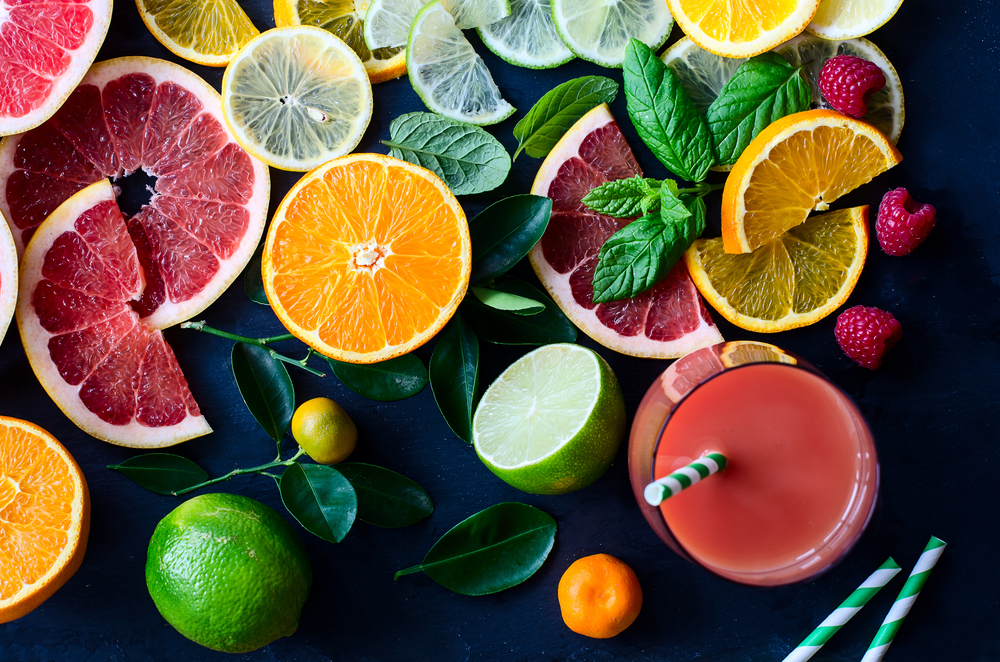
What Happens if You Consume too Much Vitamin C?
The National Institutes of Health Office of Dietary Supplements suggest the upper limit of Vitamin C per day is 2000 mg. The only way most people would take such a mega dose is with supplements.
Most people tolerate large doses of Vitamin C without incurring adverse effects. Vitamin C toxicity is possible. According to the Mayo Clinic, consuming high doses of Vitamin C are unlikely.
However, too much can result in symptoms that are undesirable. They include:
- kidney stones,
- insomnia,
- cramps,
- abdominal bloating,
- heartburn,
- vomiting,
- nausea,
- or diarrhea.
Some evidence suggests large doses of Vitamin C supplements interfere with some types of chemotherapy and radiation therapy.
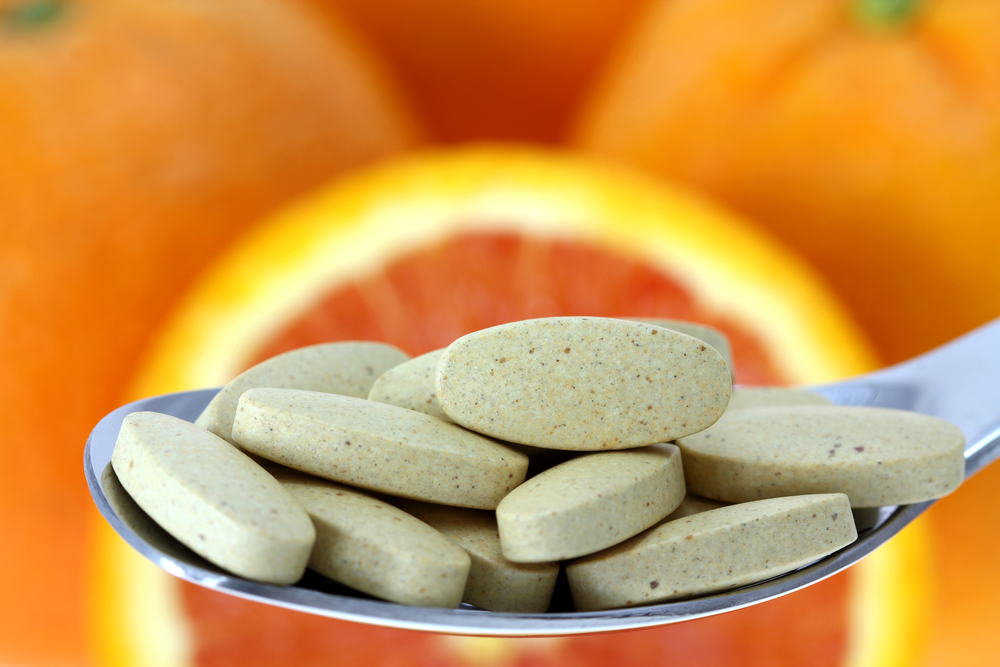
What Are the Sicknesses Vitamin C Prevents?
The body requires Vitamin C to function properly. When the immune system is strong, Vitamin C prevents diseases and health inflictions. A correct dosage consumption means a person is less likely to contract the diseases and illnesses below.
- Periodontal Disease – Low intake of Vitamin C has been linked to periodontal disease. Low levels of Vitamin C cannot resist infectious bacteria. Periodontal disease is an inflammation of the gums that causes them to bleed.
- Bone Disorders –There is a direct connection with bone disorders, and lack of Vitamin C. Vitamin C affects the collagen in the body which has a vicarious influence on bone structure. It takes part in stopping bone loss known as osteoporosis. Vitamin C not only prevents bone loss but impacts bone cell growth.
- Common Cold – People with a cold or the flu usually have low levels of Vitamin C in white blood cells. Healthy white blood cells are needed by the immune system in the destruction of toxins.
- Scurvy – Even before Vitamin C was discovered, the British Navy found consuming oranges and lemons prevented scurvy.
- Heart Attacks – The Linus Pauling Institute reports Vitamin C prevents artery damage. The collagen formed maintains the arterial wall integrity.
- Cancer – Research from human and laboratory mice studies have found a 50 to 75 percent cancer reduction that has spurred the National Cancer Institute to make a recommendation of five to ten servings of vegetables and fruit high in Vitamin C daily.
- Stroke – The Journal of the American Heart Association published a Japanese study of 800 participants. The study showed individuals who ate fruit a minimum of six times a week had a 54 percent lower stroke risk than those who ate fruit less than two times a week.
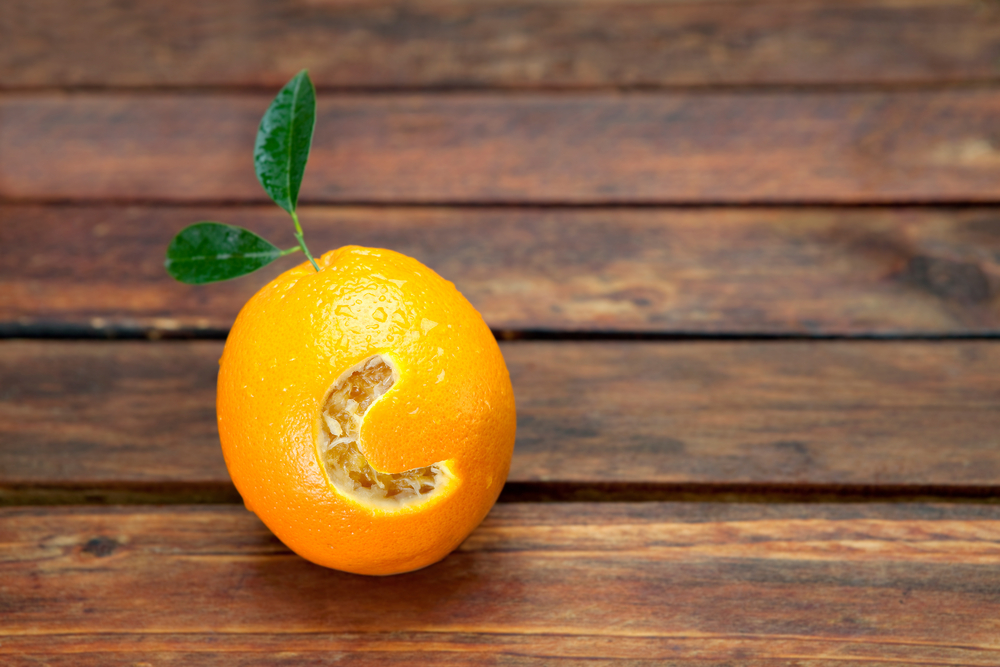
Simple Tips to Getting Enough Vitamin C
Reaching the recommended dietary allowance of Vitamin C is simple if vegetables and fruits are incorporated into the diet. Five servings of vegetables and fruits yield approximately 200 mg of Vitamin C.
The Vitamin C in harvested foods starts to diminish. The longer food is stored or in transit, the less Vitamin C it contains. Choose fresh vegetables and fruit whenever possible. Frozen produce is better than out-of-season. Out-of-season produce frequently travels long distances to market and loses more nutritional value than frozen.
Steaming or microwaving food with as little water as needed preserves some of the vitamin content. Boiling causes the greatest vitamin loss because the high temperature either allows vitamins to escape into the water or destroys them.
Disclaimer
Information in this article came from reliable sources and studies. It should be noted, that Vitamin C is the most popular supplement in the U. S. Vitamin C may also be considered controversial. Studies have been conducted that discounted some of the claims made here. Those studies have not dampened the enthusiasm of the vitamin many consider to be essential.
Try This Vitamin C Supplement
Explore Appreciate Goods
- 19 Artery-Cleansing Foods – Natural Healthy Foods for Artery Healing
- 16 Home Remedies to Getting Healthy, Glowing Skin – Naturally!
- Health Benefits of Cold Vs. Hot Showers – So Which is Better?
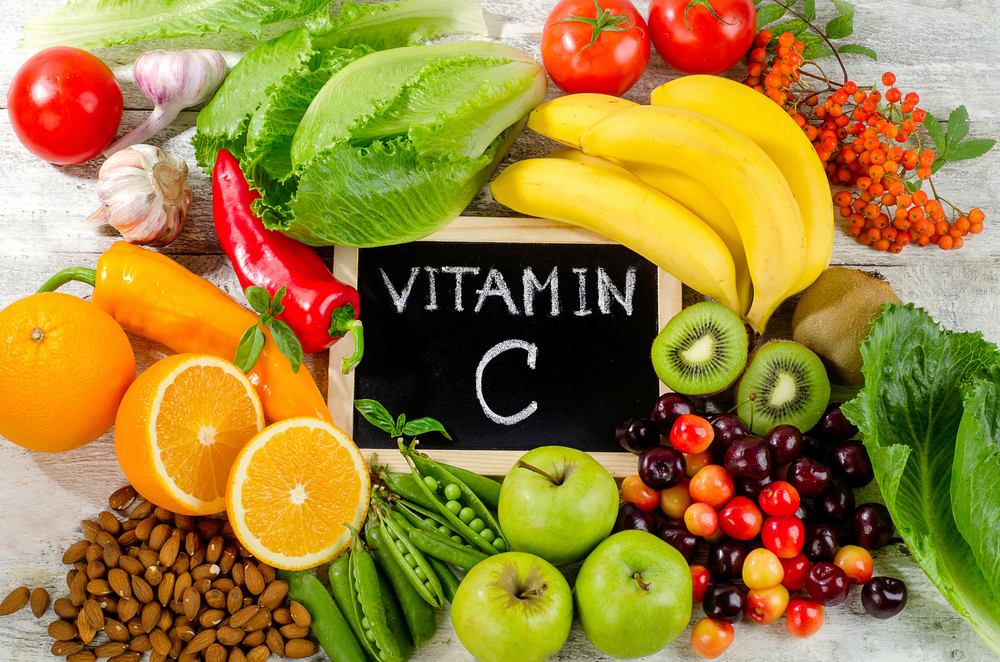
How Much Vitamin C Do We Need Per Day
Source: https://appreciategoods.com/about-vitamin-c/
